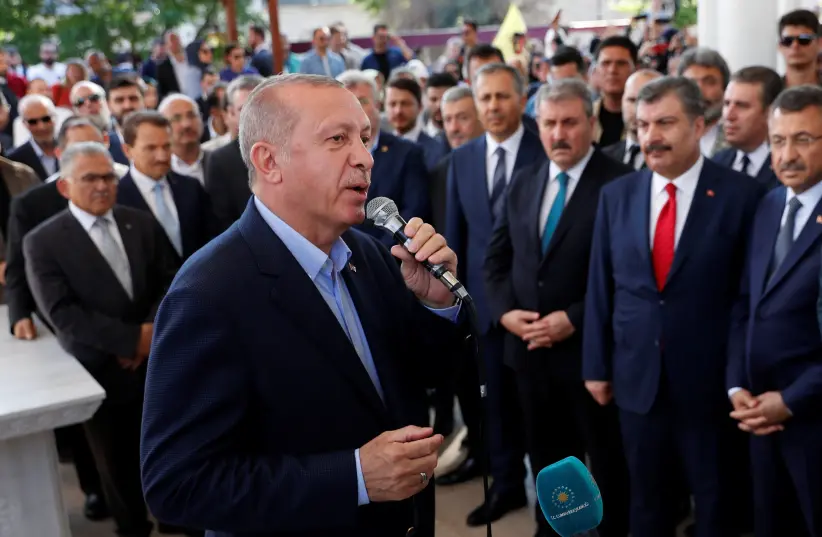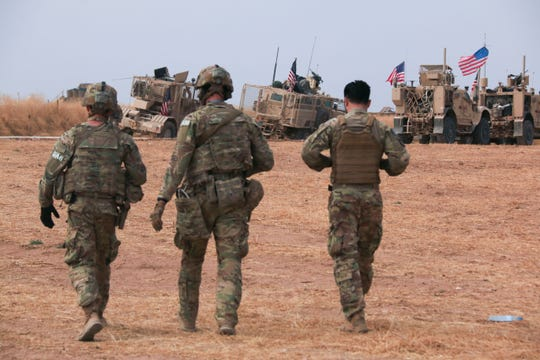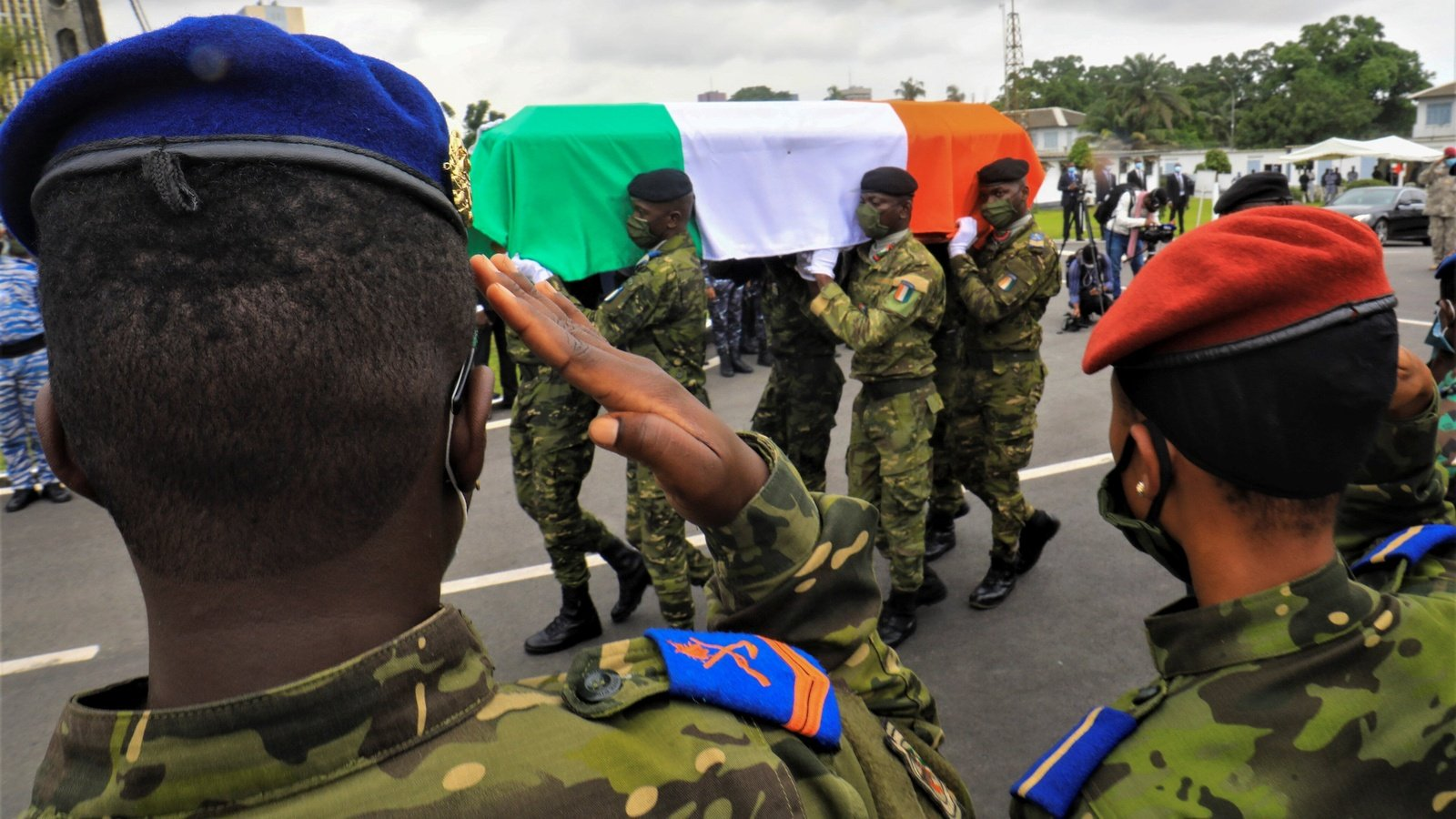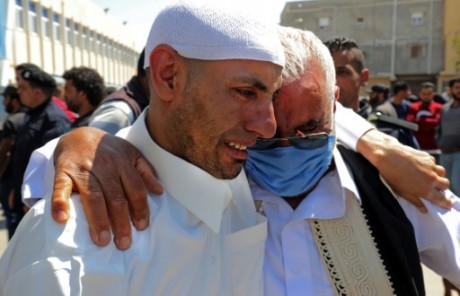Africa
Shipwreck leads to at least five deaths off Libyan coast
Mediterranean crossings from Libya are continuing, despite dangers.
At least five people died in a shipwreck off the coast of Libya on Tuesday night. Mediterranean crossings are continuing from Libya, despite persistent dangers.
UN’s Libya welcomes prisoner release as start of ‘nationwide reconciliation’
The UN mission in Libya hailed the release of more than 100 prisoners loyal to renegade commander Khalifa Hifter, calling the initiative the start of a “nationwide reconciliation.”
In a ceremony attended by members of Libya’s transitional government, 107 detainees were released from prison in the western city of Zawiya on Wednesday. The prisoners had fought with Hifter’s eastern-based Libyan National Army, which has been embroiled in a civil war against the UN-backed Government of National Accord since 2014.
Are the warming ties between Turkey, Egypt a sign of shifting geopolitics?

A possible deterioration in its relationship with Washington is driving a rapprochement between Ankara and some Arab capitals.
Despite the cold diplomatic relations between Egypt and Turkey, Ankara on Friday offered to send a tugboat to help Egypt free a massive container ship blocking the Suez Canal, amid news that ties may be warming up between the two countries.
Reimagining US foreign policy

Since the end of WWII, especially since the breakup of the Soviet Union, it appears as if US political leaders feel they are trapped in a time warp and are unable to break free. They seem to believe that they must repeat the same disastrous foreign policy of regime change over and over. Since 9/11, the US has attacked or supported attacks against Afghanistan, Iraq, Libya, Syria and Yemen. The attacks, especially the horrendous US-led war crime against Iraq, have destabilized and created havoc in the Middle East, devastated these nations and caused death and appalling suffering for the people.
Concern Grows About Jihadi Activity in Ivory Coast

In the early hours of March 29, an estimated sixty gunmen attacked two small military installations in Kafolo and Kolobougou, both located in Ivory Coast on the border with Burkina Faso. The assailants killed at least three soldiers and wounded others. While no group has claimed responsibility for the attack, the media is speculating credibly that the perpetrators were jihadis based in nearby Burkina Faso, where Islamist groups have been increasingly active.
Suez Canal reopens after stuck cargo ship is freed
Salvage teams on Monday finally freed the colossal container ship stuck for nearly a week in the Suez Canal, ending a crisis that had clogged one of the world’s most vital waterways and halted billions of dollars a day in maritime commerce.
A flotilla of tugboats, helped by the tides, wrenched the bulbous bow of the skyscraper-sized Ever Given from the canal’s sandy bank, where it had been firmly lodged since March 23.
With ship now freed, a probe into Suez Canal blockage begins
Experts boarded the massive container ship Tuesday that had blocked Egypt’s vital Suez Canal and disrupted global trade for nearly a week, seeking answers to a single question that could have billions of dollars in legal repercussions: What went wrong?
ISIS in Mozambique Poses Growing Regional Security Threat
In a signal that the Biden administration is growing concerned about the strength of jihadist groups in sub-Saharan Africa, the United States recently designated The Islamic State of Iraq and Syria – Mozambique (ISIS-Mozambique) as a Foreign Terrorist Organization (FTO) under section 219 of the Immigration and Nationality Act. The State Department also designated ISIS-Mozambique as Specially Designated Global Terrorists (SDGTs) under Executive Order 13224 and labeled the organization’s leader Abu Yasir Hassan as an SDGT. Similar treatment was given to the Islamic State of Iraq and Syria – Democratic Republic of the Congo (ISIS-DRC) as both a FTO and SDGT, and to its leader Seka Musa Baluku as a SDGT. While these groups are distinct entities, they operate under the banner of the Islamic State Central Africa Province (ISCAP). Locally, the Mozambican group is known as Al Sunnah wa Jama’ah, while the DRC affiliate is comprised of factions that were formerly part of the Allied Democratic Forces (ADF), but now generally present themselves as ISCAP.
Libya’s new interim prime minister sworn in, promises to represent all Libyans
Abdul Hamid Dbeibah has been sworn as Libya’s Prime Minister until elections later this year, following years-long violence and division in the North African country.
Dbeibah took the oath of office in front of members of parliament in the eastern city of Tobruk on Monday, after lawmakers voted in support of a unity government and approved his cabinet last week.

